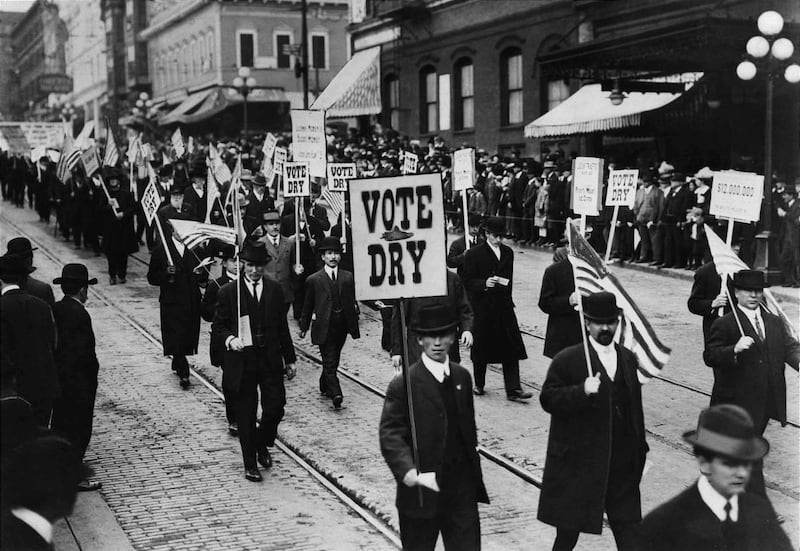The Prohibition Era is a fascinating time in American history. In the 1920s, it must have seemed like anything was possible. It conjures stories of flappers and socialites, mobsters and bootleggers.
“Prohibition,” the eagerly awaited documentary by Ken Burns and Lynn Novick, is great television. What makes it great is that it digs deep. While stories of speakeasies and mobsters are present, they don’t take the spotlight.
Episode 1: “A Nation of Drunkards” sets things up nicely. Burns and Novick take us back to the very roots of the temperance movement, beginning in the middle of the 19th century and runs up to the passing of the 18th Amendment. With the advent of distilled spirits, an explosion of “saloon culture” was spreading across the nation.
Alcoholism ran rampant, and folks began to worry. The episode also discusses the general population’s distrust of the immigrants who ran a good portion of the breweries and distilleries that quenched America’s thirst for strong drink.
The first episode is certainly the best of the three. The temperance movement was closely associated with the movement for women’s suffrage, morality and politics, which adds nuance to the film.
Episode 2: “A Nation of Scofflaws” is all about the roaring 1920s. Stories of the speakeasy and mobsters like Al Capone appear here, but we also get to hear stories about bootleggers who had no previous association with organized crime. We also learn about America’s reaction to the new law. If the commentators and interviewees are to be believed, everyone and their grandmother was drinking booze on the sly.
Episode 3: “A Nation of Hypocrites” is about the decline and fall of prohibition in America. By criminalizing the distribution, sale and consumption of alcohol as a beverage in the United States, a large portion of the population were made into criminals. As always with sweeping laws, there were unintended consequences. Immense amounts of power and prestige were put in the hands of mobsters who were already flouting the law before prohibition started. Alcohol was so entwined with the fabric of American culture that we had literally become a nation of hypocrites.
“Prohibition” is great television. The stories are compelling, and the historical figures discussed would all make great characters in a novel. The visual style is familiar but pleasing. Historical photographs along with some especially interesting recordings and film footage from the prohibition era also help.
As always with programs like this, excellent narration is a must, and Burns and Novick don’t disappoint. Famous actors such as Tom Hanks and Sam Waterston read most of the quotations in the program, and viewers enjoy trying to figure out the actor who’s reading a quote from President Herbert Hoover or some other public figure. Although all three episodes add up to about a six-hour run time, it goes by quickly.
On the other side of the coin, compelling television is not always completely objective. Historians and authors provide commentary to the documentary, and they all seem to share the same way of thinking when it comes to prohibition. None of them seem willing to concede that a nation free of alcohol may have been a goal worth working toward.
Viewers should watch “Prohibition”, but please remember that this is entertainment and not objective, even-handed journalism.
Residing in Ogden Utah, Matthew Seamons is passionate about the stories that make our lives.

